
Supernatural is the eighteenth studio album by American rock band Santana, released on June 15, 1999, on Arista Records. After Santana found themselves without a label in the mid-1990s, founding member and guitarist Carlos Santana began talks with Arista president Clive Davis, who had originally signed the group to Columbia Records in 1969. Santana and Davis worked with A&R man Pete Ganbarg, as Santana wanted to focus on pop and radio-friendly material. The album features collaborations with several contemporary guest artists, including Rob Thomas, Eric Clapton, Eagle-Eye Cherry, Lauryn Hill, Dave Matthews, Maná, and CeeLo Green.

Mingus is the tenth studio album by Canadian musician Joni Mitchell. It was released on June 13, 1979, and was her last studio album for Asylum Records. The album is a collaboration between Mitchell and Charles Mingus. It was recorded in the months before and after Mingus' death in January 1979 and is wholly dedicated to him. The album is one of Mitchell's most experimental and jazz-centric works. Mingus originally wrote six compositions for Mitchell to write lyrics for, and three of these were included on the album. Two other tracks written exclusively by Mitchell are included, alongside a new version of Mingus' standard "Goodbye Pork Pie Hat", featuring lyrics written by Mitchell. In addition to these, five spoken word tracks are dispersed throughout the album.
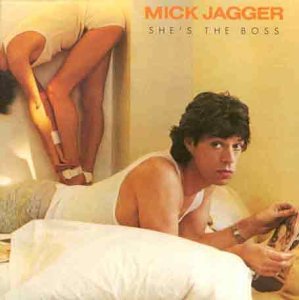
She's the Boss is the debut solo album by English singer Mick Jagger, released on 19 February 1985 in the US and 4 March 1985 in the UK.

Shaman is the nineteenth studio album by Santana. Shaman was released on October 22, 2002, and debuted at number 1 on the Billboard 200 with first week sales of 298,973. It was certified Double Platinum by the RIAA and Gold in Greece.

Caravanserai is the fourth studio album by American rock band Santana, released on October 11, 1972. The album marked a period of transition for Santana as it was the band's last to feature several key early members, while shifting in a more instrumental, progressive jazz fusion direction. It sold in fewer quantities than the band's previous chart-topping albums, stalling at No. 8 on the Billboard LPs chart, but has been critically acclaimed.

Welcome is the fifth studio album by Santana, released in 1973. It followed the jazz-fusion formula that the preceding Caravanserai had inaugurated, but with an expanded and different lineup this time. Gregg Rolie had left the band along with Neal Schon to form Journey, and they were replaced by Tom Coster, Richard Kermode and Leon Thomas, along with guest John McLaughlin, who had collaborated with Carlos Santana on Love Devotion Surrender. Welcome also featured John Coltrane's widow, Alice, as a pianist on the album's opening track, "Going Home" and Flora Purim on vocals. This album was far more experimental than the first four albums, and Welcome did not produce any hit singles.

Spirits Dancing in the Flesh is the sixteenth studio album by Santana. It reached eighty-five in the Billboard 200.
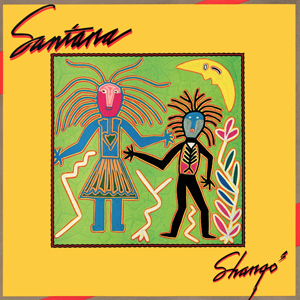
Shangó is the thirteenth studio album by Santana. The album reached #22 on the Billboard 200 album charts. The single "Hold On" from the album reached number 15 in the U.S. Billboard Hot 100 singles chart and number 17 on Billboard's Top Tracks chart. A second single from the album, "Nowhere to Run", peaked at number 66 on the Hot 100 chart and number thirteen on the Mainstream Rock chart and a third single reached number 34 in the Mainstream Rock chart.

Love Devotion Surrender is an album released in 1973 by guitarists Carlos Santana and John McLaughlin, with the backing of their respective bands, Santana and The Mahavishnu Orchestra. The album was inspired by the teachings of Sri Chinmoy and intended as a tribute to John Coltrane. It contains two Coltrane compositions, two McLaughlin songs, and a traditional gospel song arranged by Santana and McLaughlin. It was certified Gold in 1973.

Carlos Santana & Buddy Miles! Live! is a live album by Carlos Santana and Buddy Miles, released in 1972.
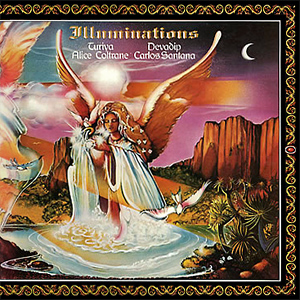
Illuminations is a 1974 collaboration between Alice Coltrane and Carlos Santana. Saxophonist/flautist Jules Broussard, keyboardist Tom Coster, drummer Jack DeJohnette, percussionist Armando Peraza and bassist Dave Holland also contributed to the album.
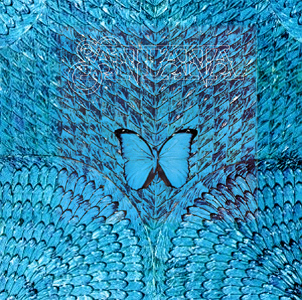
Borboletta is the sixth studio album by the American Latin rock band Santana. It is one of their jazz-funk-fusion oriented albums, along with Caravanserai (1972), and Welcome (1973). Non-band albums by Carlos Santana in this style also include Love Devotion Surrender (1973) with John McLaughlin and Illuminations (1974) with Alice Coltrane, Jack DeJohnette and Jules Broussard. The guitarist leaves much room to percussion, saxophone and keyboards to set moods, as well as lengthy solos by himself and vocals. The record was released in a metallic blue sleeve displaying a butterfly, an allusion to the album Butterfly Dreams (1973) by Brazilian musician Flora Purim and her husband Airto Moreira, whose contributions deeply influenced the sound of Borboletta. In Portuguese, borboleta means "butterfly".
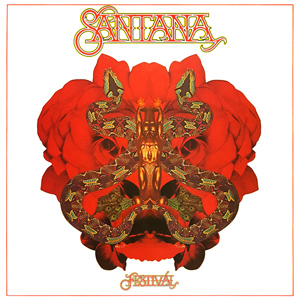
Festivál is the eighth studio album by Santana, released in January 1977. It peaked number twenty seven in the Billboard 200 chart and number twenty nine in the R&B Albums chart.

Oneness: Silver Dreams - Golden Reality is a 1979 album by Carlos Santana. It was his second of three albums to be released under his temporary Sanskrit name Devadip Carlos Santana, given to him by Sri Chinmoy. The album, which consists mostly of instrumental songs and ballads, features members of the band Santana, as well as Carlos Santana's first wife Deborah and father-in-law Saunders King. According to Santana, Oneness was influenced by Weather Report's album Mysterious Traveller. The track "Transformation Day" is an adaptation of part of Alan Hovhaness's symphonic work Mysterious Mountain.

Havana Moon is a solo album by Carlos Santana, released in 1983.

Beyond Appearances is the fourteenth studio album by Santana, released in 1985.

River: The Joni Letters is the fortieth studio album by American jazz pianist Herbie Hancock, released on September 25, 2007, by Verve. It is a tribute album featuring cover songs of music written by Canadian singer-songwriter Joni Mitchell.

Monster is the twenty-third album by jazz pianist Herbie Hancock. As a follow-up to the album Feets, Don't Fail Me Now (1979), it continued the trend of disco songs. The album features vocals on each track, this time without vocoder processing. The album also includes an appearance by Carlos Santana on the opening track "Saturday Night"; this track was the first of many eventual collaborations with Santana, including the 1980 album The Swing of Delight. The track "Stars In Your Eyes" was issued as an extended 12" single.

Headed for the Future is the seventeenth studio album by Neil Diamond, released in March 1986 on Columbia Records. The album went to number 20 on the US Billboard 200. Headed for the Future has also been certified Gold in the US by the RIAA.

Santana IV is the twenty-fourth studio album by American rock band Santana, released in April 2016.



















